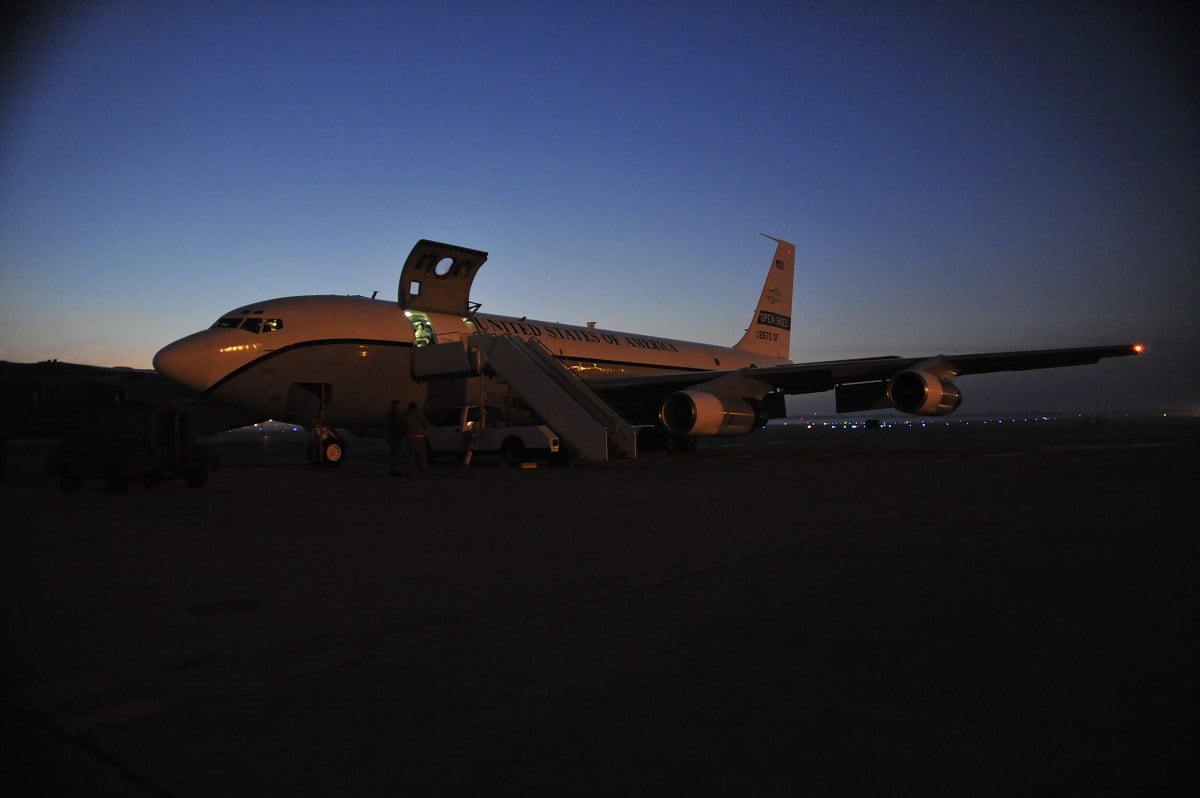WASHINGTON ― If President Donald Trump withdraws the U.S. from the Open Skies Treaty, it would “harm both U.S. and allied security interests,” two top Senate Democrats told Secretary of State Mike Pompeo on Friday.
Senate Foreign Relations Committee ranking member Bob Menendez and Senate Armed Services Committee ranking member Jack Reed told Pompeo in a letter that the treaty will still allow Russia to fly over U.S. installations in Europe, leaving the U.S. at a disadvantage, as it won’t have “the oversight or influence over the technical specifications of the data gathered” during the flights.
“If this administration moves forward with a precipitous unilateral withdrawal from the Treaty the United States will be less safe and secure,” the lawmakers said in the letter. They urged the administration to consult with the Senate, which has the constitutional authority to ratify treaties.
The U.S. has yet to make a determination on whether to remain in the Open Skies arms control agreement, which allows mutual reconnaissance flights over its 34 members, including the U.S. and Russia. Earlier this month, Defense Secretary Mark Esper warned that America “can’t continue” to tolerate Russian “noncompliance” with the treaty ― the latest jab in a running quarrel between the two nuclear powers.
While in Brussels for a recent NATO ministerial meeting, Esper pushed on allies to take a tougher line with Moscow when it comes to the Open Skies agreement, he told reporters later. U.S. officials argue Russia has placed unfair restrictions upon Open Skies flights over Kaliningrad and Georgia.
Menendez and Reed said they share those concerns but don’t think they negate the the treaty’s benefits. They noted that the U.S. has taken reciprocal steps to limit Russian overflights of America’s Pacific Fleet in Hawaii and its missile defense interceptor fields at Fort Greely, Alaska.
They pointed to the treaty’s bipartisan support in Congress, which appropriated $41.5 million for 2020 to begin replacing the aging Boeing OC-135B aircraft that America uses for its Open Skies flights. Reed, Menendez and other Democrats have issued similar warnings as recently as October.
RELATED

The Trump administration was successful in convincing European allies that Russian noncompliance on the Intermediate-Range Nuclear Forces Treaty could no longer be tolerated, which led to a unified statement from NATO in support of exiting that regime. On Open Skies, however, a number of European nations have organized to encourage the Trump administration to stay a party to the treaty.
The lawmakers’ letter came a day after Strategic Command’s Adm. Charles Richard told a House Armed Services Committee subpanel that the treaty benefits America’s allies and that they would be concerned if the U.S. were to withdraw. “There is a confidence-building aspect to it, which is favorable,” Richard said.
Those remarks are likely to bolster the case from proponents, as Menendez and Reed argued in their letter that the flights have “provided the United States and its allies and partners with valuable information about Russian activities, including on Ukrainian territory, while promoting transparency, and a sense of mutual trust between state parties.”
“For the last 17 years, the United States has robustly utilized the treaty, overflying Russia nearly three times as often as Russia overflew the United States,” the senators wrote. “In addition, the treaty serves as a key confidence-building measure: for example, flights over Ukraine have demonstrated the United States’ commitment to European security and provide shareable and incontrovertible images of Russian aggression.”
Aaron Mehta contributed to this report.
Joe Gould was the senior Pentagon reporter for Defense News, covering the intersection of national security policy, politics and the defense industry. He had previously served as Congress reporter.







